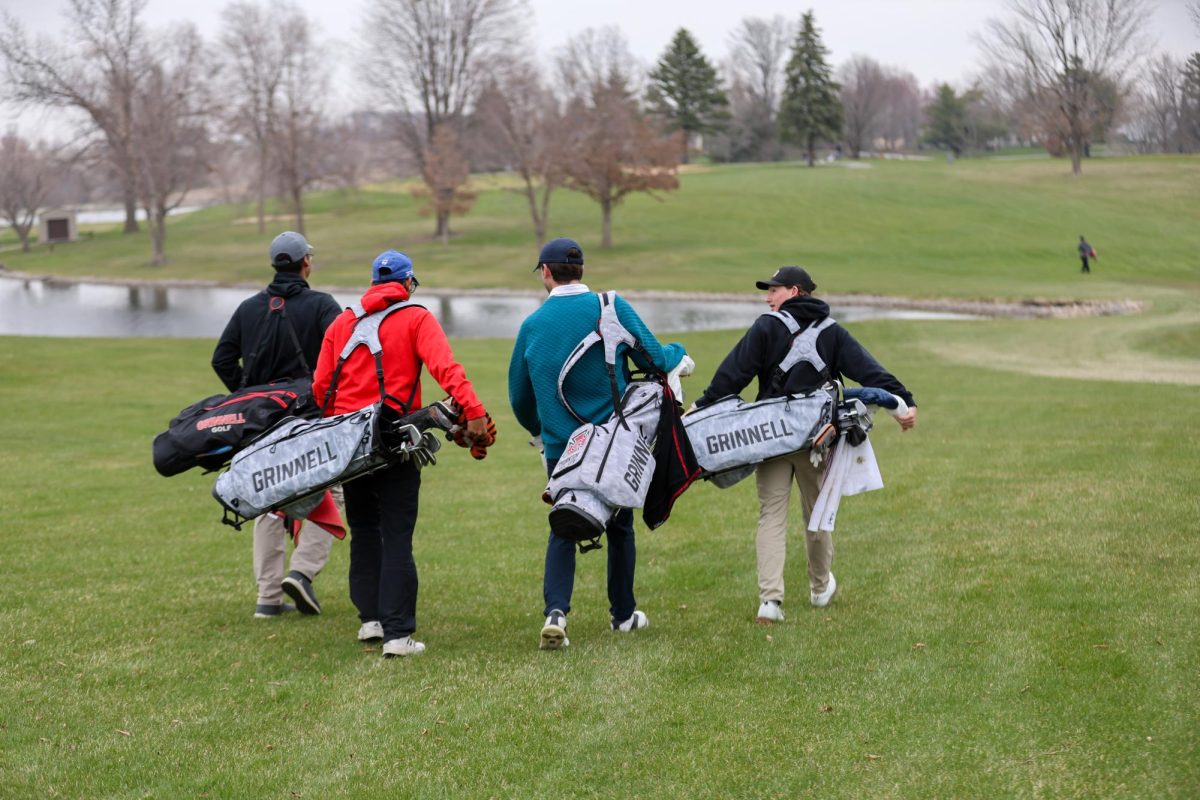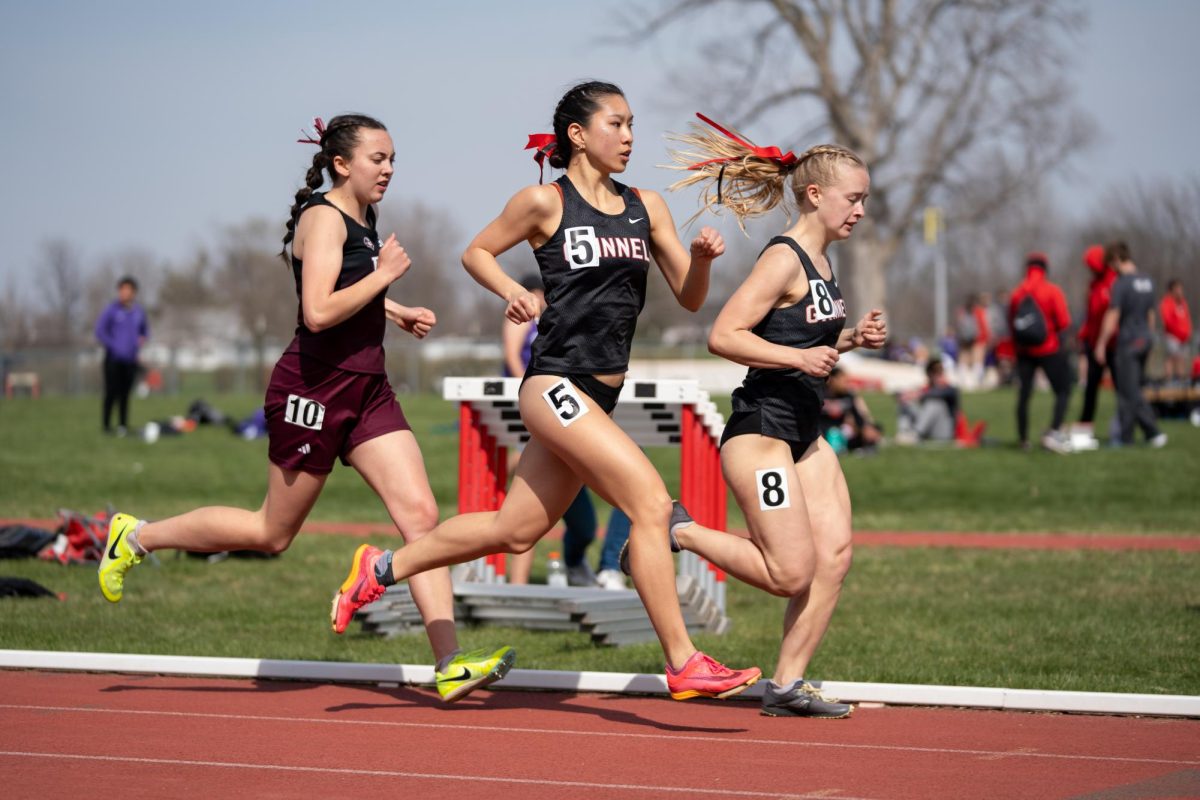Sports psychologist Birant Akbay will return to Grinnell College in the fall of 2025. A current doctoral intern at the University of Iowa, Akbay completed his practicum hours at the College from fall 2021 to spring 2024, working closely with the student-athlete population on campus. Akbay will return to Grinnell under a two-year contract arranged between Student Health and Wellness (SHAW) and the athletics department, a contract created in response to the overwhelming support for Akbay’s work by many student-athletes.
During his time, Akbay became an invaluable resource to many student-athletes. Katya Lackey `27, who runs cross country and track, said that she sought out Akbay her first year, coming to Grinnell with a stress fracture in her shin that limited her ability to run. Akbay helped her work through feelings of disconnection with the sport and identified other strategies for stress relief and emotional processing outside of running.
Akbay’s focus on gratitude and positive thinking within his work helped James Snyder `26, track and cross country runner, maintain a positive mindset when dealing with a slew of his own athletic injuries.
“Injuries are very psychological … The brain is so powerful that there’s healing that happens when the brain is more positive,” Snyder said. Adding on, he mentioned the importance of “just trying to maintain a positive attitude, even in some really frustrating and upsetting times.”
In addition to sport specific stress, adjusting to life as a college athlete provides its own challenges. Andy Chestovich `26, a track and cross country runner, said it was important to have Akbay to turn to in his first year of college.
“It’s challenging coming in trying to compete at a high level and then also adapting to college stress,” Chestovich said. “I think having someone help [new students] through that more, the athletic side of things, because we have great resources here for academics or personal life, just not as much access for athletes without Akbay.”
Terry Mason, SHAW director, spoke to that need.
“I consider the student-athletes [to be] one of the under-served populations of students [at Grinnell],” Mason said.
After receiving such positive feedback about Akbay and his work with students, SHAW and the athletics department worked to bring Akbay back to Grinnell. While SHAW does not currently have the funds to create a permanent position for Akbay, they were able to design a part-time, two-year postdoctoral contract that will bring him back to Grinnell in the fall.
“[SHAW] will work collaboratively with the athletics department to make sure that it’s a very rich experience for Birant but at the same time really provides a great service,” Mason said. “How cool is it that we’re able to get him back and that’s how much he loves Grinnell. I mean, we did not have to twist his arm.”
While working at Grinnell, Akbay went above and beyond what was required of his practicum hours, driving to the College from Iowa City to meet with teams in person. Peyton Dixon `27, a soccer player, said that Akbay met the women’s team to talk about team dynamics, bringing kinetic sand and other fidget toys for the players.
Along with their personal appreciation for Akbay, Dixon and other athletes stressed the value of having a dedicated sports psychologist. For many, though other mental health resources exist, a dedicated mental health professional who understands the unique stress and pressures of athletics is particularly valuable.
Akbay’s post-doctoral fellowship position at SHAW is not a sports psychologist position, but it has a built-in specialization that will have him working with student-athletes.
“It will be a pleasure to reconnect with the Grinnell community – students, faculty and staff – whose support has been invaluable to my professional development. I look forward to engaging in outreach activities targeting a variety of athlete specific concerns,” Akbay wrote in an email to The S&B.
“I hope to work towards reducing the stigma surrounding athlete mental health, expand access to services and promote the importance of mental health as it relates to overall student athlete well-being and performance,” he added.








Harold A Maio • Apr 14, 2025 at 10:34 am
“Reduce” the “stigma” means “continue to support” those taught and teaching that view and to “hold onto” some of it. I see no reason to support that view.
Harold A Maio